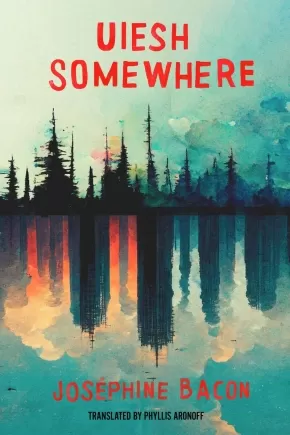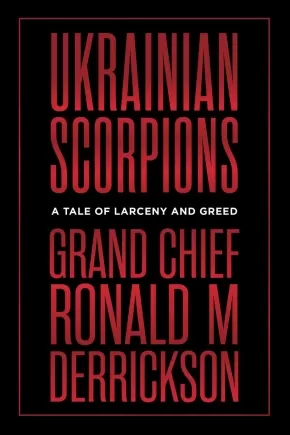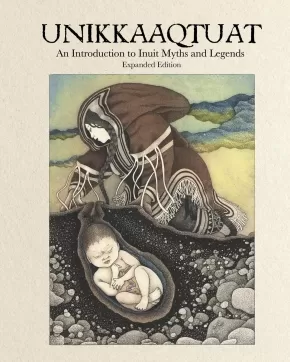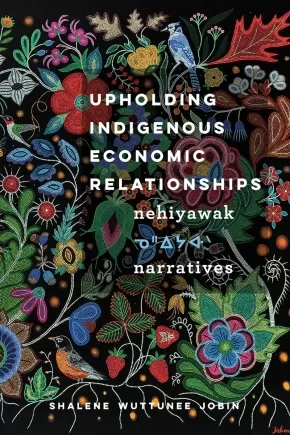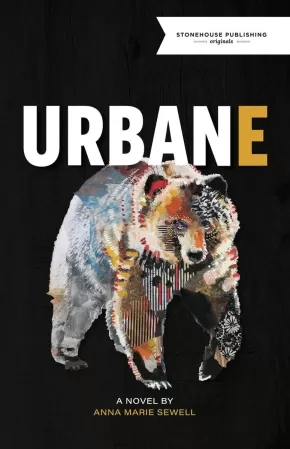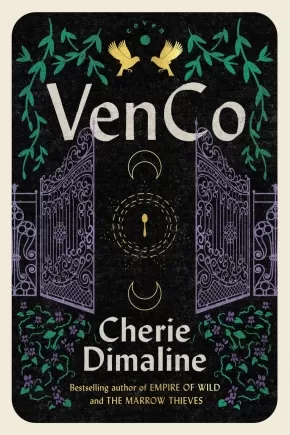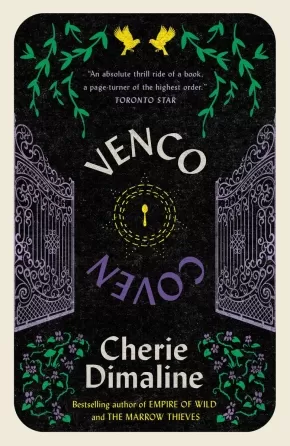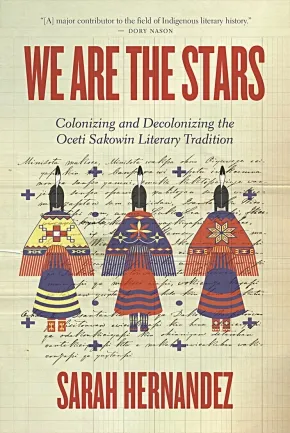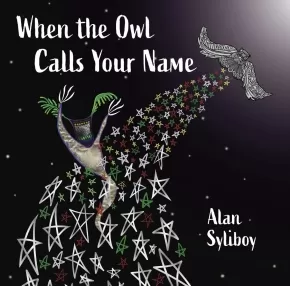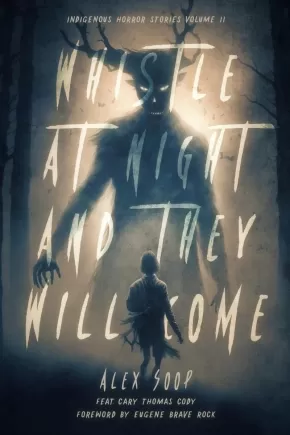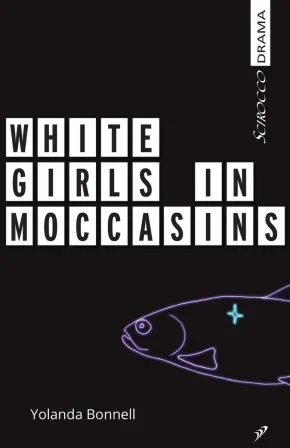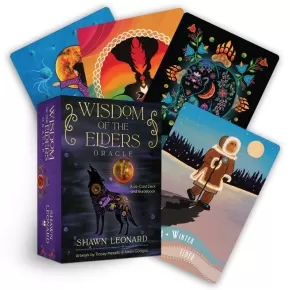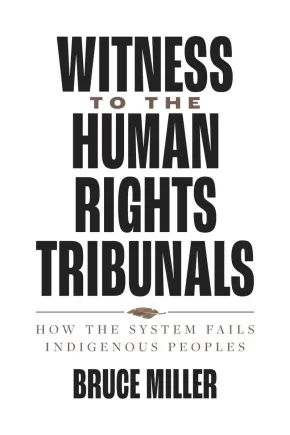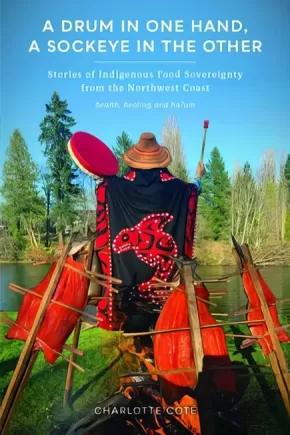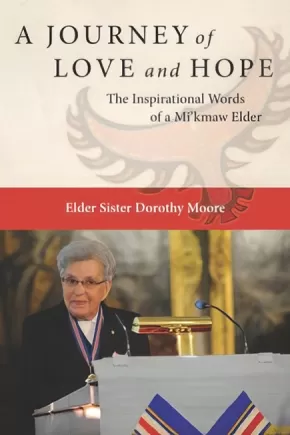
Indigenous Peoples in Canada
331
-
345
of
1085 Results;
Sort By
Go To
of 73
Uiesh / Somewhere
$19.95
Format:
Paperback
Reading Level: N/A
ISBN / Barcode: 9781772015140
Synopsis:
Synopsis:
Vital bilingual poetry by Innu Elder Joséphine Bacon
Uiesh / Somewhere consists of short poems that speak directly to the reader, without artifice or pretension. They arise from Joséphine Bacon’s experience as an Innu woman, whose life has taken her from the nomadic ways of her Ancestors in the northern wilderness of Nitassinan, or Innu Territory, to the clamour and bustle of the city. Wherever she is, the poet and Elder is attentive to the smallest details of her environment … from the moon and the stars, the aurorae borealis, the falling snow, the changing seasons, to the sirens of fire engines and ambulances and the noise of a busy bar night. From her quiet centre, she listens to the voices of the Old Ones, whose stories are alive within her, and looks back at the beauty and the pain of her long life.
Additional Information
80 pages | 6.00" x 9.00" | Paperback
Ukrainian Scorpions: A Tale of Larceny and Greed
$28.95
Format:
Paperback
Text Content Territories:
Indigenous Canadian; First Nations; Salish; Interior Salish; Syilx (Okanagan); Westbank First Nation;
Reading Level: N/A
ISBN / Barcode: 9781770415676
Synopsis:
Synopsis:
Award-winning author Grand Chief Ron Derrickson tells the story of his personal fight against Ukrainian political and economic forces alongside the larger story of the wider struggle for Ukraine to end the corruption that has plagued the country since the 1990s
Ron Derrickson watched the Russian invasion of Ukraine, the country where he had spent much of the past 20 years, with a kind of anguish, knowing the country had been systematically shut out of the EU and left on its own. While doing business there, he had entered the rabbit hole of Ukrainian political and economic life, a land where gangsters controlled not only the heights of the economy but also the police, the courts, and the national parliament. At stake was his $28 million company stolen by a cast of characters that included a former governor and members of the national parliament.
In the end, Derrickson spent a dozen years fighting for justice in the courts, in political and diplomatic spheres, and even with automatic weapon-toting mercenaries. Ukranian Scorpions tells not only the story of his personal battles but the much wider struggle of Ukraine to find its footing and shake off the gangsterism that has plagued it since the 1990s. In the end, Derrickson searches for signs that after the recent cataclysm, a new Ukraine might rise from the ashes.
Additional Information
232 pages | 6.00" x 9.00" | Paperback
Unikkaaqtuat: An Introduction to Inuit Myths and Legends - Expanded Edition
$36.95
Artists:
Format:
Hardcover
Text Content Territories:
Indigenous Canadian; Inuit;
Grade Levels: 12; University/College;
ISBN / Barcode: 9781772274882
Synopsis:
Synopsis:
Unikkaaqtuat is the Inuktitut word meaning "to tell stories."
This definitive collection of Inuit legends is thoughtfully introduced and carefully annotated to provide the historical and cultural context in which to understand this rich oral tradition. Fascinating and educational, this little-known part of Canada's heritage will captivate readers of all ages. As a work of historical and cultural preservation, this textbook will be invaluable to those studying Inuit.
Additional Information
320 pages | 8.00" x 10.00" | 100 b&w line drawings | Hardcover | 2nd Edition
Upholding Indigenous Economic Relationships: Nehiyawak Narratives
$34.95
Format:
Paperback
Text Content Territories:
Indigenous Canadian; First Nations; Cree (Nehiyawak); Métis;
Reading Level: N/A
ISBN / Barcode: 9780774865203
Synopsis:
Synopsis:
Upholding Indigenous Economic Relationships explains settler colonialism through the lens of economic exploitation, using Indigenous methodologies and critical approaches. What is the relationship between economic progress in the land now called Canada and the exploitation of Indigenous peoples? And what gifts embedded within Indigenous world views speak to miyo‐pimâtisiwin ᒥᔪ ᐱᒫᑎᓯᐃᐧᐣ (the good life), and specifically to good economic relations?
Shalene Wuttunee Jobin draws on the knowledge systems of the nehiyawak ᓀᐦᐃᔭᐊᐧᐠ (Cree people) – whose distinctive principles and practices shape their economic behaviour – to make two central arguments. The first is that economic exploitation was the initial and most enduring relationship between newcomers and Indigenous peoples. The second is that Indigenous economic relationships are constitutive: connections to the land, water, and other human and nonhuman beings form who we are as individuals and as peoples. This groundbreaking study employs Cree narratives that draw from the past and move into the present to reveal previously overlooked Indigenous economic theories and relationships, and provides contemporary examples of nehiyawak renewing these relationships in resurgent ways. In the process, Upholding Indigenous Economic Relationships offers tools that enable us to reimagine how we can aspire to the good life with all our relations.
This study will interest not only scholars and students of Indigenous studies, particularly Cree studies, but also Indigenous community members involved in community and economic development, planning, and governance.
Reviews
"Beautifully written, Upholding Indigenous Economic Relationships is crucially important as a comprehensive exploration of Cree economic values told through story and oral history." -
"Shalene Jobin’s refreshing perspective on a prairie First Nations community is a desperately needed contribution to Indigenous studies as well as history, anthropology, and Canadian studies." -
Educator Information
Table of Contents
Preface
1 Grounding Methods
2 Grounding Economic Relationships
3 nehiyawak Peoplehood and Relationality
4 Canada’s Genesis Story
5 ᐃᐧᐦᑎᑯᐤ Warnings of Insatiable Greed
6 Indigenous Women’s Lands and Bodies
7 Theorizing Cree Economic and Governing Relationships
8 Colonial Dissonance
9 Principles Guiding Cree Economic Relationships
10 Renewed Relationships through Resurgent Practices
11 Upholding Relations
Postscript
Glossary of Cree Terms
Notes; References; Index
Additional Information
272 pages | 6 x 9" | Paperback
Urbane
$22.00
Format:
Paperback
Text Content Territories:
Indigenous Canadian;
ISBN / Barcode: 9781988754444
Synopsis:
Synopsis:
"I should have punched her in the face." With these words, Hazel's back. Having survived a stint as a werewolf's accomplice on a mission of vengeance and redemption, Amiskwaciy's notoriously unknown detective and self-professed asshole Hazel LeSage returns. The aftermath of violence has left Hazel with questions, wounds and unexpected friends including Shanaya Bhattacharya, a most unusual lawyer whose thirst for wrongs to right leads her and Hazel into the claws of a conspiracy. Hazel and Shanaya set out to find Hazel's ex-husband and renegotiate the terms of their divorce, in which Hazel unjustly lost her land. They stumble into a deadly conspiracy entangling the rural lands surrounding their home city of Amiskwaciy. Taking it on will force Hazel to come to terms with her past; surviving will mean accepting some most unexpected allies. Meanwhile, in Amiskwaciy, Hazel's nephew Devin, shaken to the core by the violent death of his childhood friend, has gone to ground in an unlikely lair. To emerge whole, he must get to grips with the primal wildness of his soul and begin to become a man of worth on his own terms. Welcome back to Amiskwaciy, where the mythic has its feet up on your coffee table, and what you see might not be all you get. Urbane is the sequel to Humane, Anna Marie Sewell's best-selling 2020 first novel from Stonehouse Publishing.
Additional Information
300 pages | 5.00" x 7.75" | Paperback
VenCo (HC) (2 in Stock)
$35.00
Format:
Hardcover
Text Content Territories:
Indigenous Canadian; Métis;
Grade Levels: 12; University/College;
ISBN / Barcode: 9780735277212
Synopsis:
Synopsis:
From the bestselling author of Empire of Wild, a wickedly subversive, deliciously imaginative, deeply feminist novel of contemporary witches on the rise—a book that only the supremely gifted storyteller Cherie Dimaline could write.
Lucky St. James, orphaned daughter of a bad-ass Métis good-times girl, is barely hanging on to her nowhere life when she finds out that she and her grandmother, Stella, are about to be evicted from their apartment. Bad to worse in a heartbeat. Then one night, doing laundry in the building's dank basement, Lucky feels an irresistible something calling to her. Crawling through a hidden hole in the wall, she finds a tarnished silver spoon depicting a story-book hag over letters that spell out S-A-L-E-M.
Which alerts Salem-born Meena Good, finder of a matching spoon, to Lucky's existence. One of the most powerful witches in North America, Meena has been called to bring together seven special witches and seven special spoons—infused with magic and scattered to the four directions more than a century ago—to form a magic circle that will restore women to their rightful power. Under the wing of the international headhunting firm VenCo, devoted to placing exceptional women in roles where they can influence business, politics and the arts, Meena has spent years searching out witches hiding in plain sight wherever women gather: suburban book clubs, Mommy & Me groups, temp agencies. Lucky and her spoon are number six.
With only one more spoon to find, a very powerful adversary has Meena's coven in his sights—Jay Christos, a roguish and deadly witch-hunter as old as witchcraft itself. As the clock ticks toward a now-or-never deadline, Meena sends Lucky and her grandmother on a dangerous, sometimes hilarious, road trip through the United States in search of the seventh spoon. The trail leads them at last to the darkly magical city of New Orleans, where Lucky's final showdown with Jay Christos will determine whether the coven will be completed, ushering in a new beginning, or whether witches will be forced to remain forever underground.
Reviews
“Bring magic back into your life with the compulsively readable VenCo, a thundering, fantastical road trip with the wily Lucky St. James, her unpredictable grandmother, the witches they are trying to unite and the man who wants to end them all.” —Eden Robinson
“Once I opened VenCo, I was propelled through an entire night of charmed reading. Cherie Dimaline creates a world utterly fantastical, yet real. VenCo is funny, tense and cracking with a dark, divine energy.” —Louise Erdrich, New York Times bestselling author of The Sentence
“Crackling with magic, mystery, adventure, and intrigue, VenCo is a captivating tribute to the bonds of families we are born into and the ones that we create, and a delightful testament to the power of all womankind.” —Nikki Erlick, New York Times bestselling author of The Measure
“Spellbinding and utterly original, VenCo shows the power women can wield when we join forces.” —Kirsten Miller, author of The Change
"A gripping, witchy romp of a novel. It's impossible not to fall in love with Stella and Lucky." —BuzzFeed
"Fast, fun, full of charms. . . . A propulsive read full of intriguing detail, this novel is well-written, engaging and, more than anything, enjoyable. The reader will feel genuine affection for Dimaline’s irreverent, badass witches as they battle for the future of their family and the future of the world, one and the same in Dimaline’s inclusive vision." —Kirkus Reviews
Additional Information
400 pages | 6.00" x 9.00" | Hardcover
VenCo (PB)
$24.00
Format:
Paperback
Text Content Territories:
Indigenous Canadian; Métis;
Grade Levels: 12; University/College;
ISBN / Barcode: 9780735277236
Synopsis:
Synopsis:
From the bestselling author of Empire of Wild, a wickedly subversive, deliciously imaginative, deeply feminist novel of contemporary witches on the rise—a book that only the supremely gifted storyteller Cherie Dimaline could write.
Lucky St. James, orphaned daughter of a bad-ass Métis good-times girl, is barely hanging on to her nowhere life when she finds out that she and her grandmother, Stella, are about to be evicted from their apartment. One night, dejectedly doing laundry in the building's dank basement, Lucky feels an irresistible something calling her. Crawling through a hidden hole in the wall, she finds a tarnished silver spoon depicting a storybook hag over letters that spell out S-A-L-E-M—a spoon whose otherwordly energy soon connects her to a teeming network of witches who have been anxiously waiting for her.
Chief among them is Salem-born Meena Good, finder of a matching spoon. Under the wing of the international headhunting firm VenCo, devoted to placing exceptional women in influential jobs, Meena has been collecting these spoons, and the witches who found them, in order to former a magic circle that will restore women to their rightful power.
But now, with only one more spoon to find, a roguish and deadly witch-hunter has Meena's coven in his sights. As the clock ticks toward a now-or-never deadline, Meena sends Lucky and her grandmother on a dangerous, sometimes hilarious, road trip in search of the seventh spoon. It ends in the darkly magical city of New Orleans and a final confrontation that will either usher in a new beginning or force witches to remain underground forever.
Reviews
“Bring magic back into your life with the compulsively readable VenCo, a thundering, fantastical road trip with the wily Lucky St. James, her unpredictable grandmother, the witches they are trying to unite and the man who wants to end them all.” —Eden Robinson
“Once I opened VenCo, I was propelled through an entire night of charmed reading. Cherie Dimaline creates a world utterly fantastical, yet real. VenCo is funny, tense and cracking with a dark, divine energy.” —Louise Erdrich, New York Times bestselling author of The Sentence
“Crackling with magic, mystery, adventure, and intrigue, VenCo is a captivating tribute to the bonds of families we are born into and the ones that we create, and a delightful testament to the power of all womankind.” —Nikki Erlick, New York Times bestselling author of The Measure
“Spellbinding and utterly original, VenCo shows the power women can wield when we join forces.” —Kirsten Miller, author of The Change
"A gripping, witchy romp of a novel. It's impossible not to fall in love with Stella and Lucky." —BuzzFeed
"Fast, fun, full of charms. . . . A propulsive read full of intriguing detail, this novel is well-written, engaging and, more than anything, enjoyable. The reader will feel genuine affection for Dimaline’s irreverent, badass witches as they battle for the future of their family and the future of the world, one and the same in Dimaline’s inclusive vision." —Kirkus Reviews
Additional Information
400 pages | 5.20" x 8.00" | Paperback
We Are the Stars: Colonizing and Decolonizing the Oceti Sakowin Literary Tradition
$39.95
Format:
Paperback
Text Content Territories:
Indigenous American; Native American; Sioux; Lakota; Sicangu Oyate (Rosebud Sioux Tribe); Dakota;
Grade Levels: University/College;
ISBN / Barcode: 9780889779181
Synopsis:
Synopsis:
An emerging Lakota scholar’s critical interrogation of settler-colonial nations that re-centers Oceti Sakowin (Dakota) women as the tribe’s traditional culture keepers and bearers.
We Are the Stars is a literary recovery project that seeks to reconstruct a genealogy of Oceti Sakowin (Dakota) literature, and study in-depth the linkages between settler colonialism, literature, nationalism, and gender via analysis of tribal and settler colonial narratives about women and land.
Sarah Hernandez begins by exploring how settler colonizers used the printing press and boarding schools to displace Oceti Sakowin women as traditional culture keepers and bearers, with the goal of assimilating completely the Dakota, Nakota, and Lakota nations.
She then shifts her focus to decolonization, exploring how contemporary Oceti Sakowin writers and scholars have started to reclaim Dakota, Nakota, and Lakota literatures to decolonize and heal their families, communities, and nations.
Additional Information
256 pages | 6.00" x 9.00" | Paperback
When the Owl Calls Your Name
$22.95
Artists:
Format:
Hardcover
Text Content Territories:
Indigenous Canadian; First Nations; Mi'kmaq;
ISBN / Barcode: 9781774712467
Synopsis:
Synopsis:
"The Owl Song" by Alan Syliboy & the Thundermakers is now a gorgeously illustrated book for all ages, exploring Mi'kmaw spirituality, life and death.
They say when the Owl calls your name
that the Creator is calling you home.
And when the owl comes to you,
he sits and waits until your final breath.
Then your journey begins.
From bestselling author Alan Syliboy (Mi'kmaw Daily Drum, Wolverine and Little Thunder, The Thundermaker) comes a beautiful new book exploring spirituality, mortality and grieving. An illustrated extended version of his popular song "The Owl Song," it features imagery inspired by his band Alan Syliboy & The Thundermakers' performance material and an author's note on Mi'kmaw tradition and Syliboy's own personal experiences with death. This book for all ages is a poignant depiction of what might happen when the Owl calls your name, and you begin your journey home to the ancestors.
Educator Information
The publisher recommends this picture book for all ages.
Subjects: death, grief, afterlife, spiritual, Mi'kmaw tradition
Additional Information
32 pages | 8.00" x 8.00" | Hardcover
Whistle at Night and They Will Come: Indigenous Horror Stories Volume 2
$29.95
Format:
Paperback
Text Content Territories:
Indigenous Canadian;
ISBN / Barcode: 9781990735301
Synopsis:
Synopsis:
In this followup to his hugely popular Midnight Storm Moonless Sky: Indigenous Horror Stories, Blackfoot storyteller Alex Soop plunges us again into enthralling tales that mix reality with dark terror. Within its stories, Whisper at Night and They Will Come reveals ancient theories of the paranormal, post apocalyptic scenarios, impossible wells of grief, and monstrous phobias. Soop scares the wits out of readers, all the while uncovering overlooked social anxieties and racism affecting Indigenous Peoples across North America.
Educator & Series Information
This is the second volume in the Indigenous Horror series.
Additional Information
276 pages | 5.50" x 8.50" | Paperback
White Girls in Moccasins
$15.95
Format:
Paperback
Text Content Territories:
Indigenous Canadian; First Nations; Anishinaabeg; Ojibway;
Reading Level: N/A
ISBN / Barcode: 9781990738241
Synopsis:
Synopsis:
Miskozi is searching for something...There's something missing. And she's not sure what it is. She goes on a search for herself and her culture, accompanied by her inner white girl, Waabishkizi, and guided by Ziibi, a manifestation of an ancestral river, both provoking her to try and find the answers. She begins the journey back before she was even born, right at the seeds of colonization when her ancestors were forced to hide their culture anywhere they could. Burying their language.Their teachings.Their bundles.Their moccasins. White Girls in Moccasins is a hilarious and poignant reclamation story that world-hops between dreams, memories, and a surreal game show. Miskozi recounts her life and is forced to grapple with her own truth, while existing in a society steeped in white supremacy. A love letter to brown kids born in the 80s, surviving in the 90s and all those continuing to deeply reclaim.
Additional Information
72 pages | 5.50" x 8.50" | Paperback
Wisdom of the Elders Oracle: A 44-Card Deck and Guidebook
$28.99
Artists:
Text Content Territories:
Indigenous American; Native American; Mi'kmaq;
Reading Level: N/A
ISBN / Barcode: 9781401971755
Synopsis:
Synopsis:
A 44-card oracle deck focusing on the teachings, traditions, and wisdom of the Mi’kmaq people, meant to help the reader create a deeper connection with the spirit world and Mother Earth.
Indigenous wisdom is sacred and has been shared for many generations by the Elders of the spirit world, and it is through their wisdom that we bridge the physical world to the spirit world. When you use these oracle cards you are walking in the world with the wisdom of the Elders. These teachings were meant to be shared with you, and to help you through your daily and spiritual life.
This deck is a tool meant to support you on your journey through life; the purpose of sharing these teachings is to help you grow and develop spiritually, within your own personal connection to Spirit, and to your loved ones on the other side.
The cards include—but are not limited to—teachings and concepts like:
Indigenous wisdom is sacred and has been shared for many generations by the Elders of the spirit world, and it is through their wisdom that we bridge the physical world to the spirit world. When you use these oracle cards you are walking in the world with the wisdom of the Elders. These teachings were meant to be shared with you, and to help you through your daily and spiritual life.
This deck is a tool meant to support you on your journey through life; the purpose of sharing these teachings is to help you grow and develop spiritually, within your own personal connection to Spirit, and to your loved ones on the other side.
The cards include—but are not limited to—teachings and concepts like:
- the Seven Grandfather Teachings
- the Four Sacred Fire Teachings
- the Four Sacred Medicines
- the Milky Way
- Talking Circle
- Two-Spirit
- Spirit Totem Animal
- Power Totem Animal
- Wigwam.
Additional Information
120 pages | 3.94" x 5.44" | 44-Card Deck and Guidebook
Witness to the Human Rights Tribunals: How the System Fails Indigenous Peoples
$34.95
Format:
Paperback
Text Content Territories:
Indigenous Canadian;
Reading Level: N/A
ISBN / Barcode: 9780774867764
Synopsis:
Synopsis:
What happens behind the scenes at a Canadian human rights tribunal? And why aren’t human rights tribunal processes working for Indigenous people?
Witness to the Human Rights Tribunals opens the doors to the tribunal, revealing the interactions of lawyers, tribunal members, expert witnesses, and Indigenous litigants. Bruce Miller provides an in-depth look at the role of anthropological expertise in the courts, and draws on testimony, ethnographic data, and years of tribunal decisions to show how specific cases are fought and how expert testimony about racialization and discrimination is disregarded. His candid analysis reveals the double-edged nature of the tribunal itself, which re-engages with the trauma and violence of discrimination that suffuses social and legal systems while it attempts to protect human rights.
Grounded in expert experience, this important book asks hard questions. Should human rights tribunals be replaced, or paired with an Indigenous-centred system? How can anthropologists support an understanding of the pervasive discrimination that Indigenous people face? It definitively concludes that any reform must consider the problem of symbolic trauma before Indigenous claimants can receive appropriate justice.
An international audience of scholars and students of law, anthropology, the anthropology of law, human rights, and alternative justice will find this comprehensive work invaluable. Advocates, lawyers, and other professionals involved in human rights tribunals and extra-court proceedings will also find it an important addition to their libraries.
Additional Information
240 pages | 6.00" x 9.00"| 8 tables | Paperback
A Drum in One Hand, a Sockeye in the Other: Stories of Indigenous Food Sovereignty from the Northwest Coast
$41.00
Format:
Paperback
Text Content Territories:
Indigenous Canadian; First Nations; Nuu-chah-nulth (Nootka); Tseshaht First Nation;
Grade Levels: 12; University/College;
ISBN / Barcode: 9780295749525
Synopsis:
Synopsis:
In the dense rainforest of the west coast of Vancouver Island, the Somass River (c̓uumaʕas) brings sockeye salmon (miʕaat) into the Nuu-chah-nulth community of Tseshaht. C̓uumaʕas and miʕaat are central to the sacred food practices that have been a crucial part of the Indigenous community’s efforts to enact food sovereignty, decolonize their diet, and preserve their ancestral knowledge.
In A Drum in One Hand, a Sockeye in the Other, Charlotte Coté shares contemporary Nuu-chah-nulth practices of traditional food revitalization in the context of broader efforts to re-Indigenize contemporary diets on the Northwest Coast. Coté offers evocative stories of her Tseshaht community’s and her own work to revitalize relationships to haʔum (traditional food) as a way to nurture health and wellness. As Indigenous peoples continue to face food insecurity due to ongoing inequality, environmental degradation, and the Westernization of traditional diets, Coté foregrounds healing and cultural sustenance via everyday enactments of food sovereignty: berry picking, salmon fishing, and building a community garden on reclaimed residential school grounds. This book is for everyone concerned about the major role food plays in physical, emotional, and spiritual wellness.
Reviews
"A powerful philosophy of food sovereignty. Coté successfully navigates myriad scholarly and nonscholarly voices, telling a compelling comprehensive story that helps us understand the practices and policies needed to make change in our food systems." — Kyle Whyte, Michigan State University
"Adeptly uses a deep storytelling method, including both lived experience and critical analysis of history and theory, to examine experiences and transformations of Indigenous foodways." — Hannah Wittman, University of British Columbia
"I am so grateful for Charlotte Cote’s A Drum in One Hand, a Sockeye in the Other, which creates a path into the living foodways and thoughtways of her people. Her warm, storytelling voice and sharing of collective knowledge embody the generous spirit of a feast, and this book itself, is a feast." — Robin Wall Kimmerer (Potawatomi), SUNY Environmental Science and Forestry
Additional Information
208 pages | 6.00" x 9.00" | 17 b&w illustrations | 2 maps | Paperback
A Journey of Love and Hope: The Inspirational Words of a Mi'kmaw Elder
$24.95
Artists:
Format:
Hardcover
Text Content Territories:
Indigenous Canadian; First Nations; Mi'kmaq;
Reading Level: N/A
ISBN / Barcode: 9781774711187
Synopsis:
Synopsis:
The long-awaited collection of talks, presentations, prayers, and ceremonies of renowned Mi'kmaw Elder, human rights activist, and language and culture warrior, Sister Dorothy Moore.
Mi'kmaw Elder Sister Dorothy Moore has spent a lifetime advocating for the rights of her people. As a well-known educator and a survivor of the Shubenacadie Indian Residential School, she has broken down systemic barriers, leading the Mi'kmaq to access all levels of education, and worked tirelessly to reclaim and promote Indigenous ways of knowing and being.
In A Journey of Love and Hope, Sister Dorothy's words are collected in print, as she originally spoke them, for the first time. Included are speeches, talks, presentations, and ceremonies delivered between 1985 and 2015 to universities, government departments, and Indigenous organizations and gatherings. Thematic sections include Culture and Language, Spirituality, Racism, Education, and Prayers and Ceremonies, framed by Ikantek (introductions) from well-known Mi'kmaw writers and educators, as well as an Associate Sister of the Sisters of St Martha.
Sister Dorothy's talks and presentations will inspire and serve to disrupt the dominant narratives of complex Indigenous issues such as colonialism, oppression, racism, and discrimination. A Journey of Love and Hope gives a voice to Mi'kmaw lived experiences and provides a valuable resource for use in schools, postsecondary education institutions, and communities. Her words are an inspiration to all Treaty people.
Features original illustrations by celebrated Mi'kmaw artist Gerald Gloade and appendices, including a complete list of Sister Moore's talks and presentations and a timeline of life events.
Additional Information
184 pages | 6.00" x 9.00" | Hardcover | Colour photo insert
Sort By
Go To
of 73

